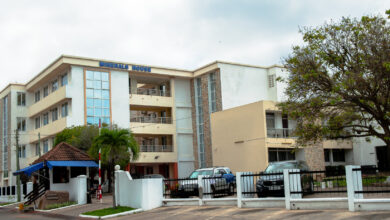Ghana’s Informal Sector: 80% of Jobs, Only 27% of GDP – GSS Report Exposes Productivity Crisis
Despite employing the vast majority of Ghana’s workforce, the informal sector remains plagued by low productivity, underemployment, and stagnant wages—posing a major challenge to economic growth and transformation.

- The informal sector provides 80% of jobs but contributes only 27% to GDP
- Sectors like finance see wage growth, while agriculture and trade remain stagnant
- Experts urge industrialization, tech adoption, and policies to formalize informal businesses.
Ghana’s informal sector employs nearly 80% of the workforce yet contributes only 27% to GDP, exposing a major productivity gap, according to the first edition of the National Report on Productivity, Employment, and Growth, released by the Ghana Statistical Service (GSS).
The report highlights a troubling reality: while the informal sector provides livelihoods for the majority of workers, it suffers from low productivity, underemployment, and stagnant wages, posing a significant challenge to economic growth.
Labour productivity grew by an average of 3.2% annually between 1991 and 2019, with key gains concentrated in capital-intensive sectors such as mining and finance. However, despite a 14% productivity increase in manufacturing between 2013 and 2022, employment in the sector grew by only 2.5%, signaling slow industrial expansion.
Similarly, while the mining sector recorded high productivity growth, job creation remained limited, underscoring Ghana’s reliance on industries that do not generate widespread employment.
The report further reveals a widening gap between productivity and wages. While workers in finance, insurance, and professional services have enjoyed wage growth, those in household agriculture, trade, and repair services continue to experience stagnation.
A sectoral breakdown identifies commercial agriculture, transportation, utilities, and manufacturing as industries contributing to both job creation and productivity. However, Ghana’s economic transformation remains sluggish, with many workers shifting from traditional trades to low-productivity urban services, limiting overall economic benefits.
To address these challenges, the report calls for increased investment in industrialization, expansion of commercial agriculture, and policies to integrate informal businesses into the formal economy. It also stresses the importance of technology adoption, workforce upskilling, and targeted fiscal measures to drive productivity.
With Ghana at an economic crossroads, analysts warn that without bold policy reforms, the country risks deepening income inequality, stagnating productivity growth, and failing to create sustainable jobs for its workforce.





